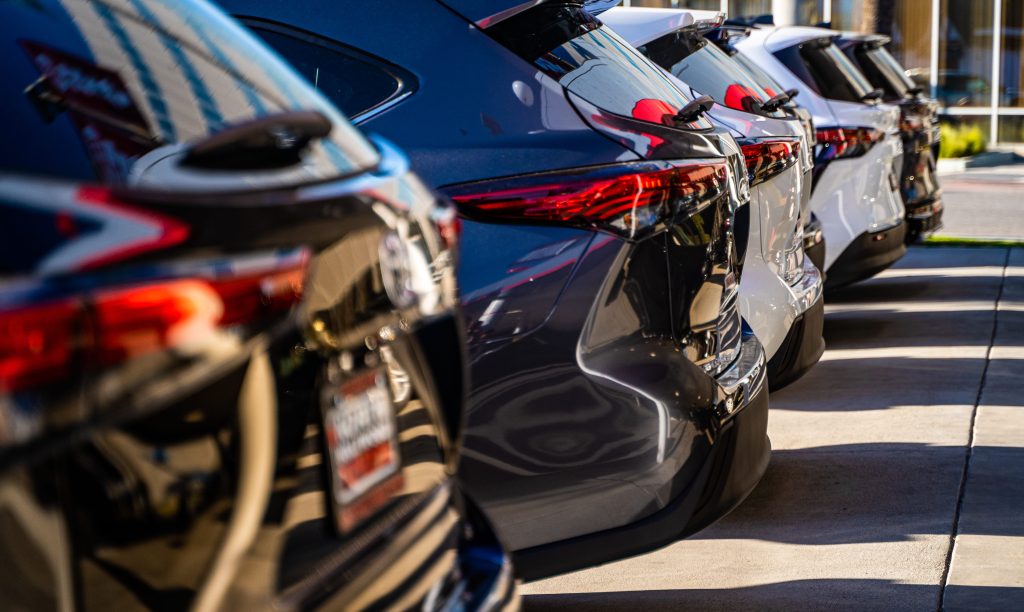Maintenance Expenses of Owning a Pre-owned Car vs. a New Car
Posted Tuesday, Jan 02, 2024

Did you know that, on average, car owners spend over $1,000 annually on maintenance costs? The financial commitment doesn't end at the dealership—it's an ongoing consideration.
Today, let's check out the car ownership costs by dissecting the maintenance expenses of used cars versus new cars. The decision between a used or new car goes beyond the initial price tag; it involves understanding the long-term financial implications.
Maintenance Costs of Used Cars
Used cars often come with a lower initial price tag, providing immediate savings at the point of purchase. This initial affordability is a significant draw for budget-conscious buyers.
However, it's crucial to recognize that used cars may entail specific maintenance considerations. As vehicles age, certain parts might require more consideration. Regular check-ups and proactive maintenance become essential to ensure ongoing reliability.
Despite these considerations, the potential for short-term savings is evident. With prudent maintenance practices, a used car can offer a cost-effective solution for those looking to minimize initial financial outlay while still enjoying the benefits of vehicle ownership.
Understanding the maintenance landscape of used cars involves weighing the initial savings against the potential long-term maintenance needs.
At Thrive Auto Sales Inc., we guide customers in navigating these considerations, ensuring a clear understanding of the practical and financial aspects of owning a used vehicle.
Factors Influencing Used Car Maintenance Costs
The age and mileage of a used car significantly influence maintenance costs. As vehicles accumulate more miles and years, the likelihood of wear and tear on essential components increases. Older cars may require more frequent repairs and replacements, impacting the overall cost of ownership.
Regular maintenance is paramount for extending the longevity of a used car and managing associated costs. Routine checks, timely oil changes, and addressing minor issues prevent small problems from escalating into costly repairs. A well-maintained used car not only performs better but also proves more cost-effective over time.
Maintenance Costs of New Cars
There is a common perception that new cars come with lower maintenance costs. While this is true to some extent, it's crucial to examine the factors influencing this perception and the practical implications.
Many new cars come with warranties that cover certain maintenance aspects for a limited time. This initial coverage can create a perception of lower maintenance costs during the early stages of ownership.
New cars often feature advanced technologies and intricate systems. While these innovations enhance performance and safety, they can also contribute to increased maintenance costs. Repairing or replacing cutting-edge components may require specialized knowledge and parts, impacting overall maintenance expenses.
The initial depreciation of a new car can affect long-term maintenance costs. As the vehicle ages, the depreciation curve levels off, and maintenance costs may rise. Understanding the balance between initial depreciation and long-term maintenance is crucial for evaluating the overall cost of owning a new car.
Practical Tips for Reducing Maintenance Costs
There are some ways that you can reduce your maintenance costs, too! Whether you end up buying a new car or a used one, here are some ways that you can reduce your total costs of car ownership.
Importance of Regular Maintenance Checks
Regularly inspect your vehicle for signs of wear and tear. Addressing minor issues before they escalate can prevent costly repairs in the long run.
DIY Maintenance and Basic Repairs
Learn and perform simple maintenance tasks such as changing the oil, replacing air filters, and checking tire pressure. DIY efforts can save money on routine upkeep.
Making Informed Choices During the Car-Buying Process
Research and choose a vehicle known for reliability and with a track record of lower maintenance costs. A well-informed decision during the car-buying process sets the stage for more cost-effective ownership.
Follow the Manufacturer's Maintenance Schedule
Adhere to the manufacturer's recommended maintenance schedule. Regular service intervals are designed to keep your vehicle in optimal condition and prevent major breakdowns.
Invest in Quality Parts
When replacement parts are necessary, consider investing in quality components. While they may have a higher upfront cost, they often last longer, reducing the frequency of replacements.
Drive Responsibly
Gentle driving habits, such as smooth acceleration and braking, can extend the lifespan of various components, including brakes, tires, and the transmission.
Use the Right Fuel
Follow the manufacturer's recommendation for the type of fuel your vehicle requires. Using the correct fuel can contribute to the engine's efficiency and longevity.
Protect Your Vehicle from the Elements
Park in a covered area or use a car cover to shield your vehicle from the sun, rain, and snow. This helps prevent exterior wear and corrosion.
Educate Yourself on Basic Troubleshooting
Familiarize yourself with your vehicle's manual and learn basic troubleshooting. Being able to identify and address minor issues can save you from unnecessary trips to the mechanic.
Consider Extended Warranties
When purchasing a used car, explore extended warranty options. While it involves an additional upfront cost, an extended warranty can provide financial security against unexpected major repairs.
Conclusion
In summary, the decision between owning a used or new car involves a nuanced understanding of maintenance costs.
For used cars, while they offer immediate savings with lower initial costs, age, and mileage considerations can influence maintenance expenses. Regular maintenance checks become paramount for extending their longevity.
New cars, often perceived as having lower maintenance costs, may come with technological complexities. Initial depreciation and long-term costs should be considered, and warranties may cover some maintenance for a limited time.
At Thrive Auto Sales Inc., our commitment extends beyond selling cars. We're dedicated to empowering our customers with the information needed for sound decision-making. Whether you're considering a used or new vehicle, our team is here to guide you through the intricacies of maintenance costs, ensuring that your car ownership experience is both informed and financially sensible.
Trust Thrive Auto Sales Inc. to be your partner in navigating the road of car ownership with clarity and confidence.
